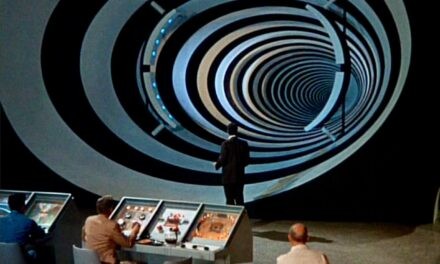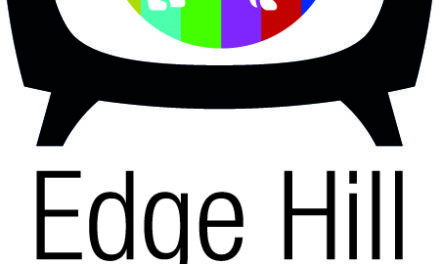I knew I’d really made it when the New York Times wanted to speak to me about ‘Monocles’ last week.
The inquiry was based, said the Grey Lady’s email, on my work about food on television. That in turn derived from something in my dark past. Years ago, I did a spot on the Food Network’s immodest televisual autobiography for its Chefography series. I had been invited because of my book Cultural Citizenship. The producers in fact turned my interview into an unpaid voiceover, removing the critical parts and remaking me into an unpaid, institutionally hagiographic narrator. I was rightly criticized for this in a thoughtful blog, which acknowledged the likelihood that I had no idea what had happened.
Scrolling on from 2008 to the present day, the Times couldn’t work out why this history meant I could help them—but asked me anyway. Since that was the link, I assumed there was a new Greek celebrity chef named Monocles who had emerged from the detritus of the nation’s economic disaster at some mysterious point during the last five years (my thinking went this way: ‘Monocles’ rhymes with ‘Pericles,’ at least in a Bob-Dylan-writes-poetry universe). Then I realized the capital letter ‘M’ had misled me; the Times’ email referred to an eyeglass.
Perhaps unsurprisingly, the resultant interview did not last long. Even though I finally cottoned on (at least I think I did), my interlocutor seemed far from riveted, though I was able to introduce him to the work of Radclyffe Hall.
But this was far from the totality of my public labors last week. Visit immediately, do not delay, click now or forever hold your app; in short, go to the following. Thirteen minutes in, you’ll see my powerful intervention on the cultural politics of Kate Moss turning forty.
When I arrived at ZDF’s TV “studio” in an office close to Parliament Square, which London Online wonderfully describes as a radio station, I found myself in a telling moment of participant observation: I was captured by my environment, even as I was helping to constitute it. Imagine a chap’s response, fresh as he was from the startling work done on Monocles the Greek chef, to entering the inner sanctum of German televisual power. Producers, best boys, camera operators, recording engineers—all were ready for me; in the toilets.
The idea was that we could reconstruct a London club as the mise-en-scène in the ZDF washrooms. They were narrow, gauche, fast, rouge, and featured high lighting. I was in my element, though my demand for some talcum powder to inhale through a fifty pound note as part of my 50-something club-boy look (I wore a plunging neckline—rather fetching, I fondly imagined—but the producers, for reasons that can only be imagined, declined to show off my white chest hair. There’s no accounting for culture) was not met. In any event, a style-free mix of narrow walls that seemed to get rapidly narrower as per some ’40s Hollywood adventure serial became my home as I talked about our Kate being size zero, mute, and therefore perhaps not the best exemplar of supposedly emulable femininity.
That evening I did a long interview on the Oscar nominations for Ian Masters’ groundbreaking Background Briefing radio show, in which I found myself explaining Richard Nixon’s ‘Southern strategy’ and how it has set the tone ever since for the racialization of Republican electoral politics.
My status as an organic intellectual of the international working class, vouchsafed by my immigrant mom leaving school at 13 never to return and only spuriously imperiled by my attendance at fancy fee-paying schools that were parthenogenetic dispositifs of the idiot sons of the élite, was once more assured. I was talking about the real issues and had done so on international television and radio, even if Monocles had bitten Athenian dust.
But how frustrating this is, when you think about it more deeply. You learn, or think you do, about topics of major significance: the sexuality of footballers, the coverage of war, the culture of pharmacological drugs, the globalization of sports, gender in The Avengers (prefer 1962-68), theories of citizenship, the environmental impact of media production, use, and disposal, investigations of cultural policy, the history of espionage on screen, and so on.
But unless you have done a ‘study,’ which seems to mean an experiment or some effects research, the bourgeois media don’t want to know. They are interested in atmospheric, light, cultural criticism where you pull a bunch of opinions out of your ass.
The fantasy of being a public intellectual who offers interpretations of cultural performances or texts that illuminate broader social tendencies, or speaks in philosophical terms about political theory, is far distant from a few seconds snatched on TV where maybe, just maybe, the translation of your words raises some questions about sexism. Otherwise, this is what can happen when television studies is an embodiment of fandom. The media draw on it to get a professor to say what is so banal that no one else would dare say it.
Toby Miller is 20% of a Professor of Media and Cultural Studies at Cardiff University. You can follow his misadventures at tobymiller.org and the ‘culturalstudies’ podcast on iTunes or as an application for your smartphone.




